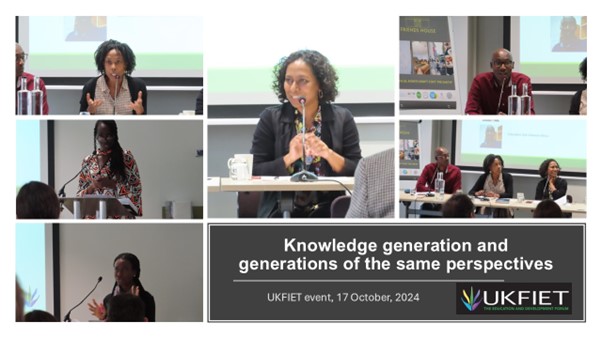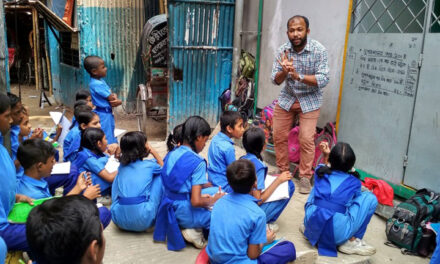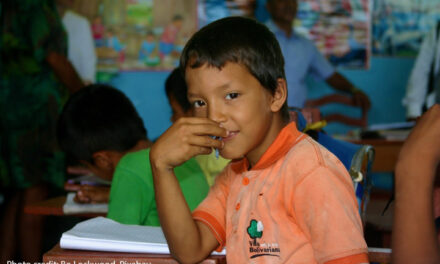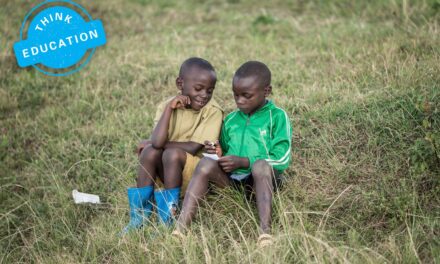This blog was written by Yvette Hutchinson, outgoing Chair of the UKFIET Executive Committee, to summarise the inaugural ‘UKFIET Chair’s Event’, held in London on 17 October, 2024.
Over the last few years, I have been involved in work around decolonisation, reparative futures, anti-racism, girls’ education and the issue of boys’ education in small island developing states (SIDS). In all of these areas of work, there have been a few recurring themes around justice, equity, and widening our understanding of epistemologies and ontologies.
In this first UKFIET Chair’s event, my aim was to reflect on some of these interests. I decided to focus on discourse and actions relating to the generation of knowledge and the recognition of other and othered ways of knowing and doing. I also wanted to provide a platform for those working to bring diverse knowledge systems into current international education praxis.
The event took place in London and was my final event before the UKFIET Annual General Meeting where I and the UKFIET Deputy Chair, Professor Lizzi Milligan, handed over the reins to the new Chair, Dr. Maia Chankseliani and Deputy Chair Purna Shrestha. I began by framing the discussion and outlining my own positionality as someone who recognises the blend of ambiguities and hypocrisies of my ethnicity and sex, my job, education and spending power. I did this by sharing the song, ‘Are My Hands Clean?’ by the African American women’s a capella group Sweet Honey in the Rock which reminded me and the audience of our many contradictions.
I then framed the discussion by asking five questions which were covered in the two-hour roundtable discussion with academics I specifically invited to respond to the questions based on their academic interests and activism.
The questions were:
- Whose are the main voices in international education?
- What are the processes that maintain this status quo?
- What might disruption look like?
- Whose might be the new voices and how do we amplify them?
- What can we do differently from today in our own organisations and spheres of influence?
Through short presentations, questions, comments and reflections, the panel and the audience shared some valuable thoughts and ideas.
To answer the first question, I referred to bibliometric analysis of authors referenced in the Global Education Monitoring Report (GEM) Report between 2002 and 2015, who largely represent an elite group of Northern-educated men who are consistently cited, and whose influence on education and international development is immense. Indeed, the idea for this topic was in part a response to that analysis which prompted me to raise the issue with the UKFIET committee as an area for us to explore.
Dr Bukola Oyinloye, University of York, shared recent findings from a short piece of research commissioned by UKFIET to explore the visibility, opportunities and influence of Southern researchers in education and international development, with a view to helping UKFIET members think about how we can open up possibilities for more equitable knowledge production in the sector. Databases of education researchers from low- and middle-income countries have been created as one way to increase the visibility of these researchers, Bukola outlined the relational nature of visibility as an opportunity to bring together a community of researchers. This theme of building community, working together and re-envisioning a different future recurred throughout the event.
 Dr. Sharon Walker, University of Bristol, responded to the second question about the status quo, by encouraging us to be critical of the framings that govern how we do our work. As a fan of the TV programme ‘Dr Who’, Sharon invited us to have the courage to create our own TARDIS in which we ‘let go’ of some of the framings and strictures we have inherited.
Dr. Sharon Walker, University of Bristol, responded to the second question about the status quo, by encouraging us to be critical of the framings that govern how we do our work. As a fan of the TV programme ‘Dr Who’, Sharon invited us to have the courage to create our own TARDIS in which we ‘let go’ of some of the framings and strictures we have inherited.
Later on, in discussion with others she expanded on the role of leaders to lead by example, adopting a ‘servant-leadership’ approach; using their power to free, enable and empower others.
Professor Esther Priyadharshini, University of East Anglia, shared with us her love of the work of Kamau Braithwaite, whose innovative work looked at voice and sound to expand how we appreciate and credit ranges of expression and knowledge creation.
Commenting on her commitment to creating other channels for acknowledging learning and research findings, Esther challenged us to think more openly about the ‘citational economy’ using Robin Wall Kimmerer’s book, Braiding Sweetgrass: Indigenous Wisdom, Scientific Knowledge and the Teachings of Plants as an example of how we can move away from the ownership of ideas and the notion of knowledge as property.
Dr. Samuel Asare, Education Sub Saharan Africa (ESSA) was able to speak about their work with African researchers, echoing some of the limitations and opportunities that Bukola had outlined. ESSA’s commitment to amplifying the voices of African researchers has enabled them to identify some of those new voices that the education and international development community needs to hear.
Samuel’s presentation also guided us to discuss our final question, about what we can do in our own institutions. He highlighted the importance of creating spaces, promoting equitable and inclusive partnerships and providing practical opportunities for African researchers to contribute to journals, conferences and policy discussions.
In the wider discussion we considered how we might engage with donors and use our power to promote African researchers as leads and principal investigators in research projects, and how we might use different channels to share our knowledge and ideas.
There are still questions that I want to explore:
- How do we challenge the ‘ownership of knowledge’ while at the same time actively aim to encourage ‘Southern’ theories and epistemological approaches?
- What role does language play in the formation of academic discourse? How can we disrupt this through new and emerging technologies?
- How can we influence donor agencies to reframe their bidding policies to embrace low- and middle-income countries researchers and other ways of knowing and doing?
To go back to Sharon’s reflections, perhaps we need to create a new TARDIS, a future-space where we reframe the structures and think critically about our assumptions and expectations of what we do and how we do it.
I began the session by referring to particular writers that I admire. I will close with the words of the wonderful bell hooks whose solution gives me hope and also represents what UKFIET can and should always promote: “One of the most vital ways we sustain ourselves is by building communities of resistance, places where we know we are not alone.”





